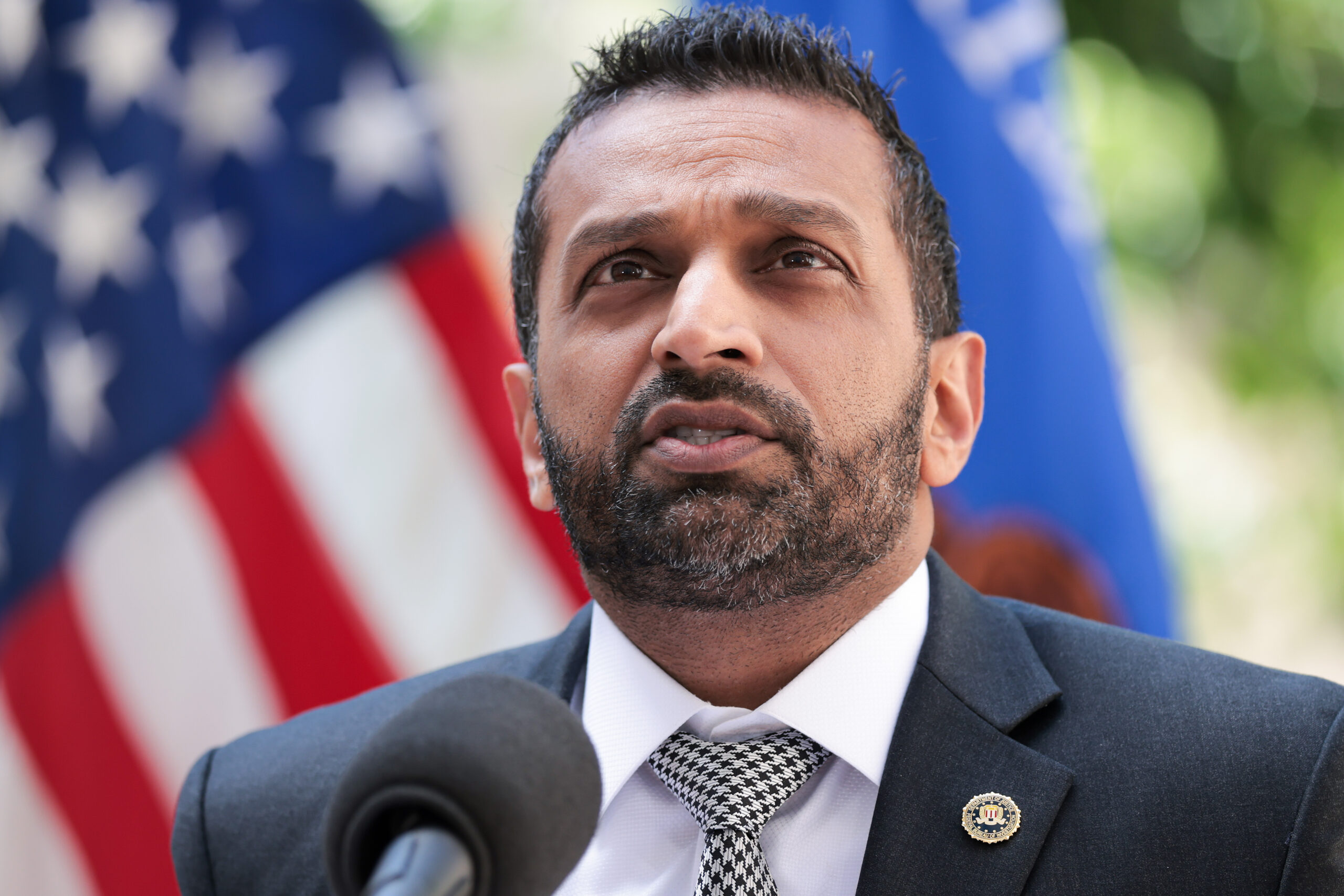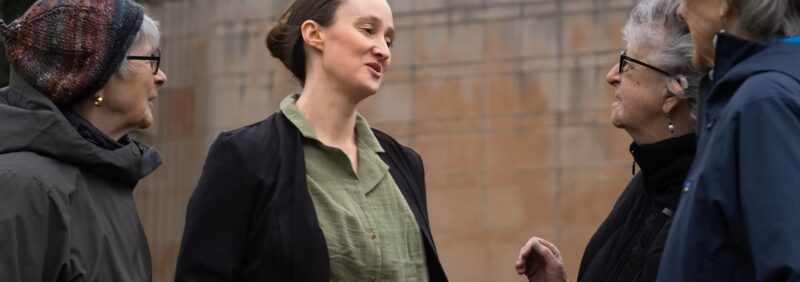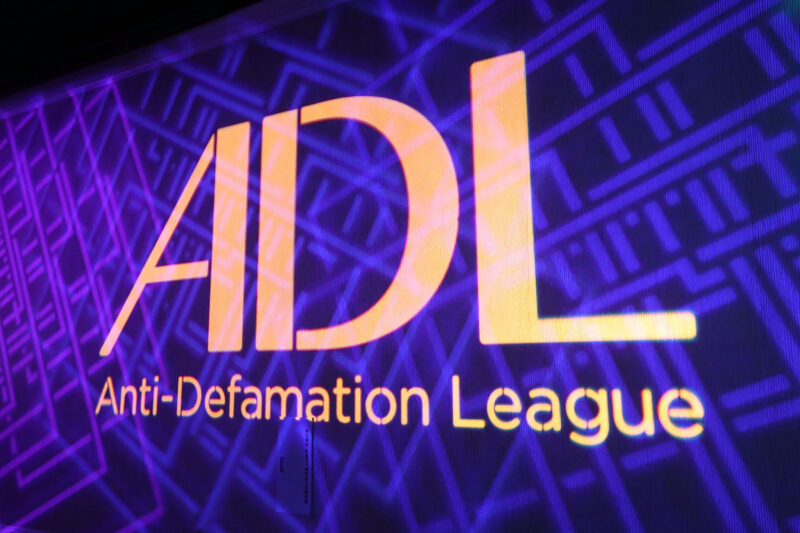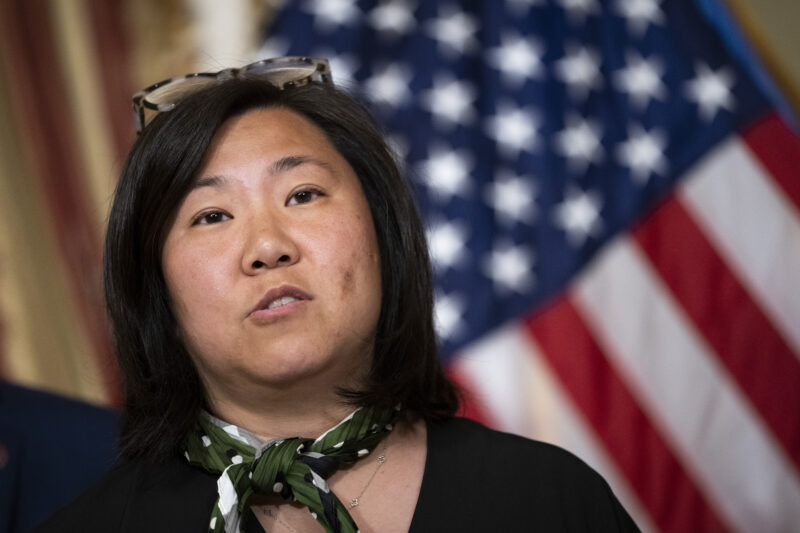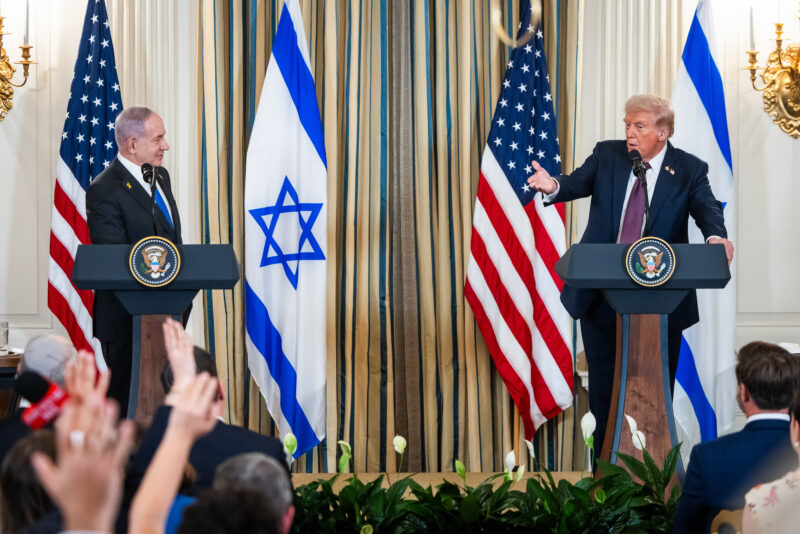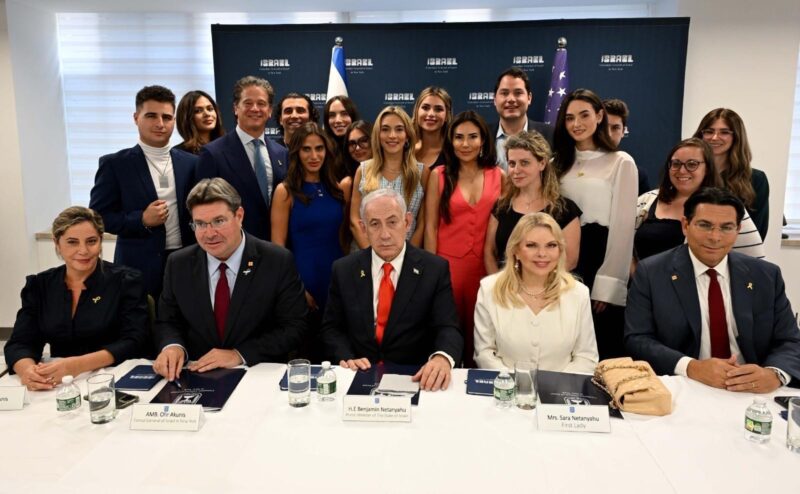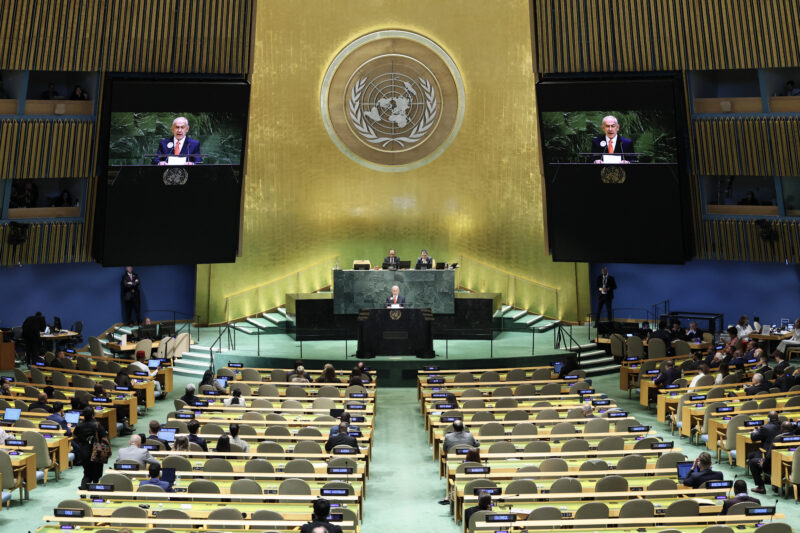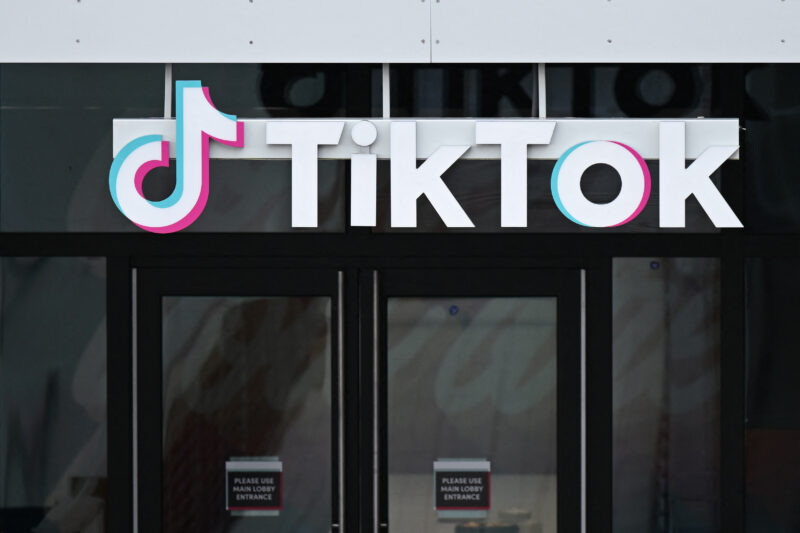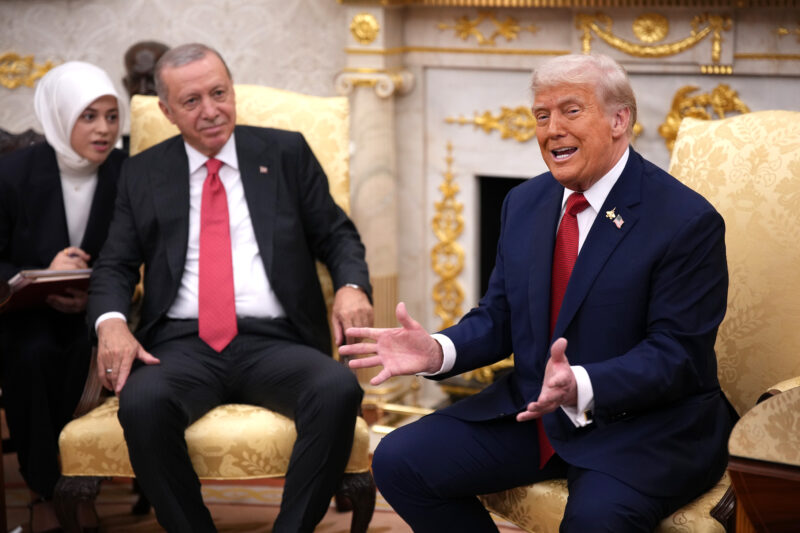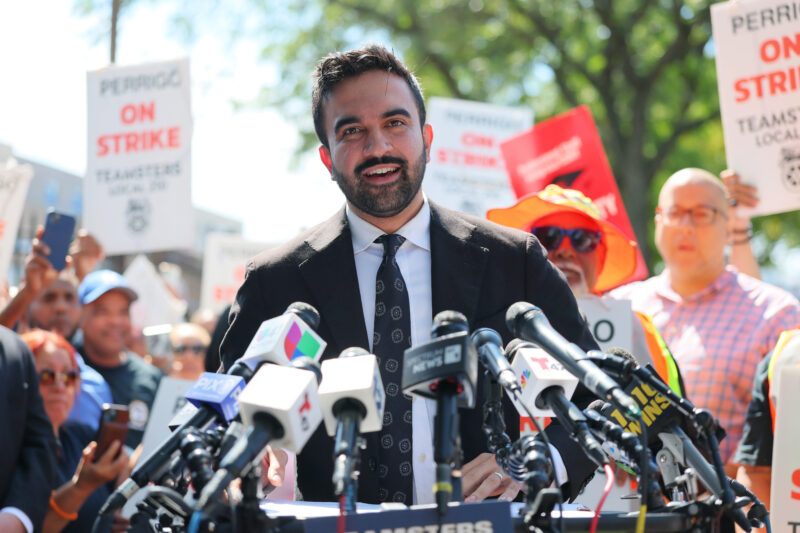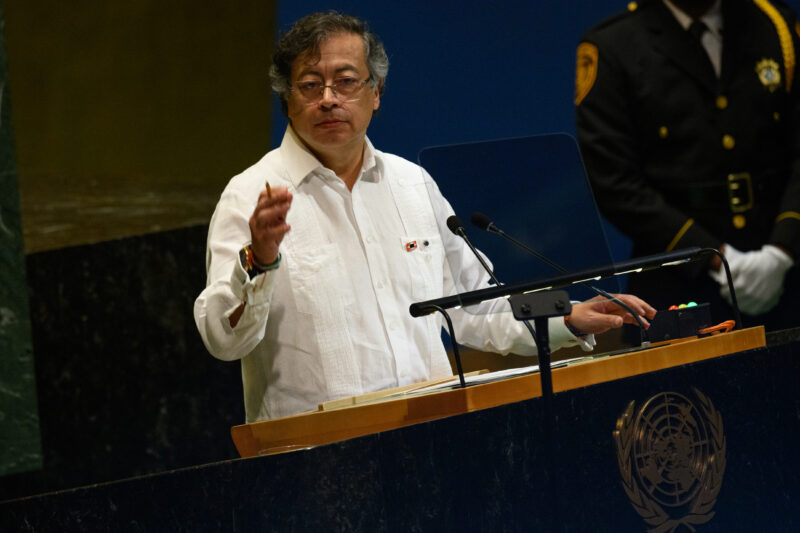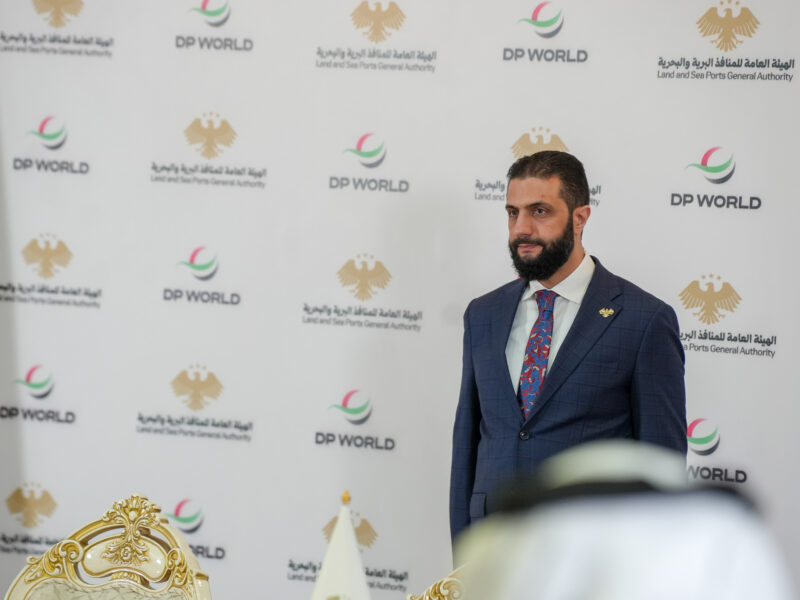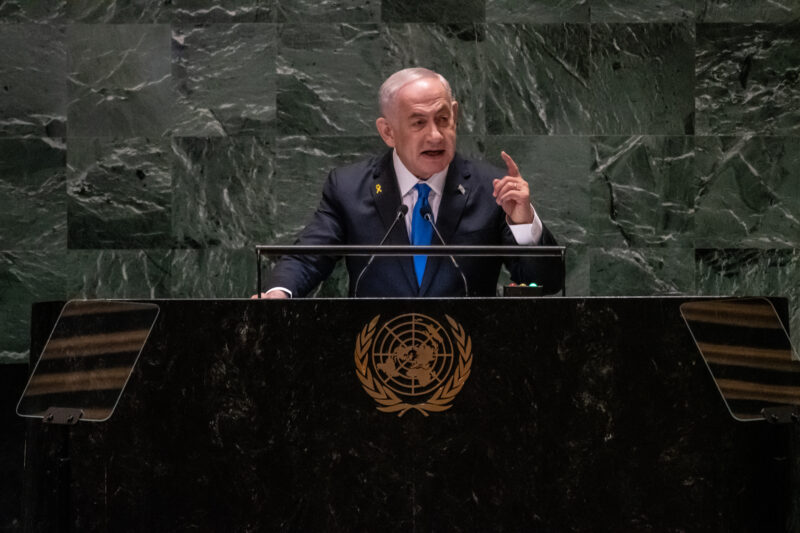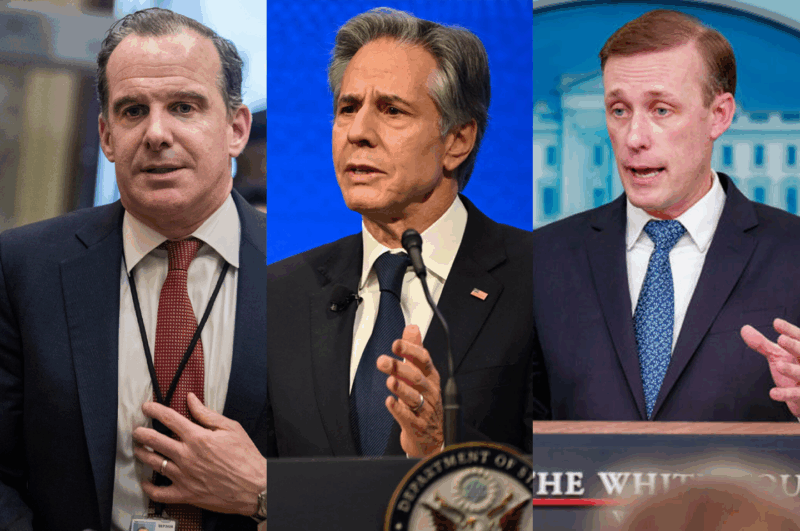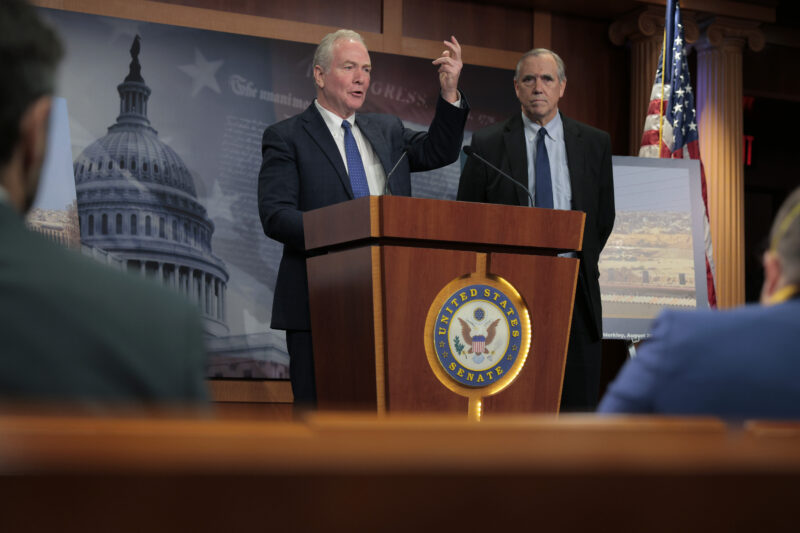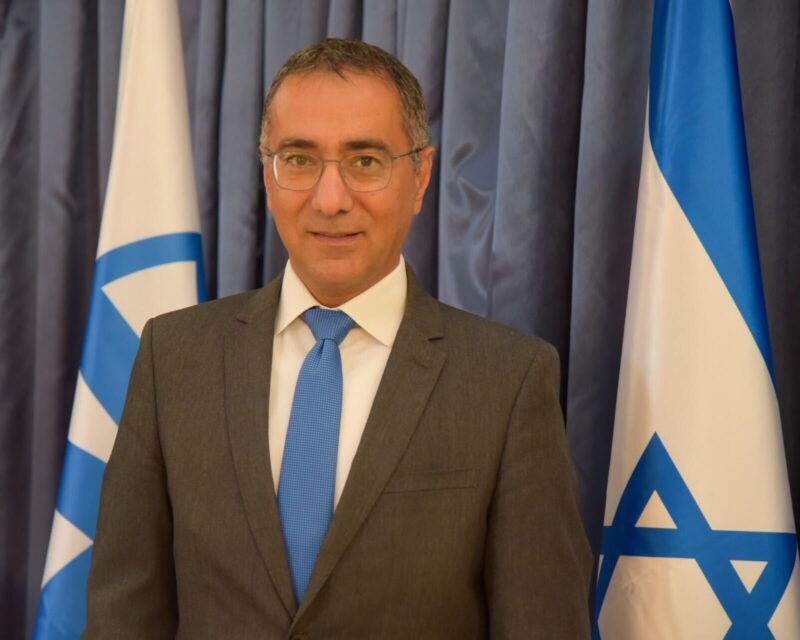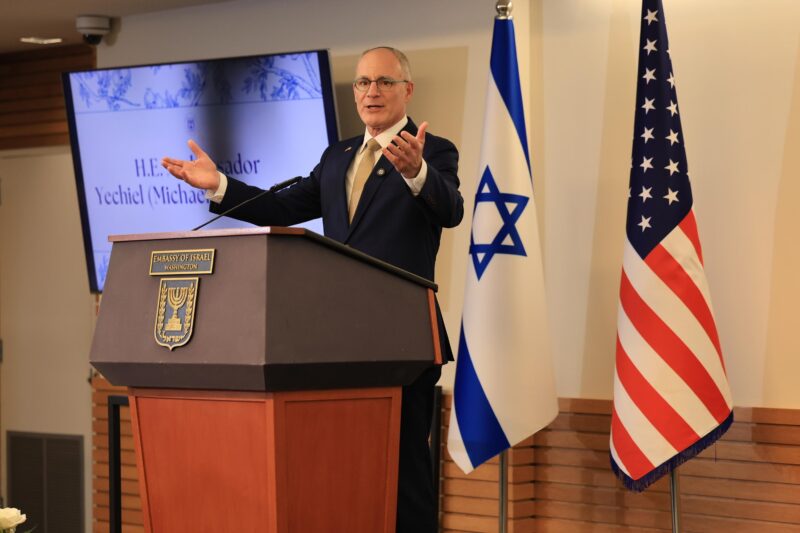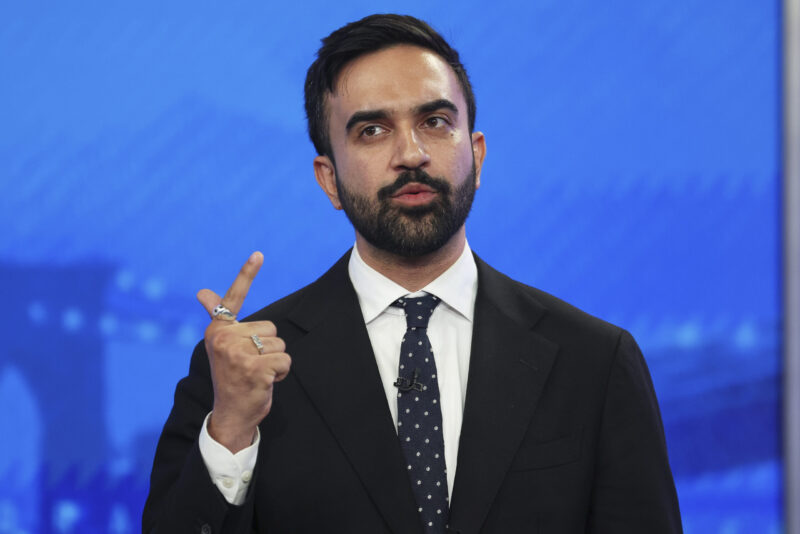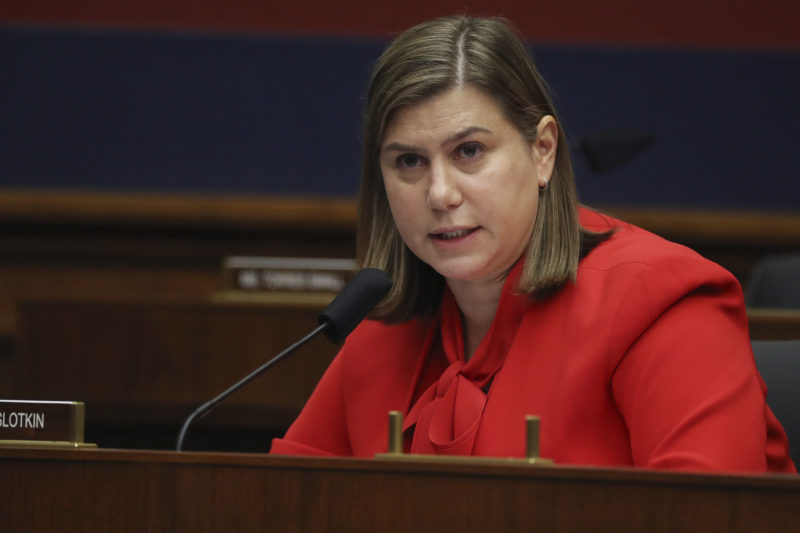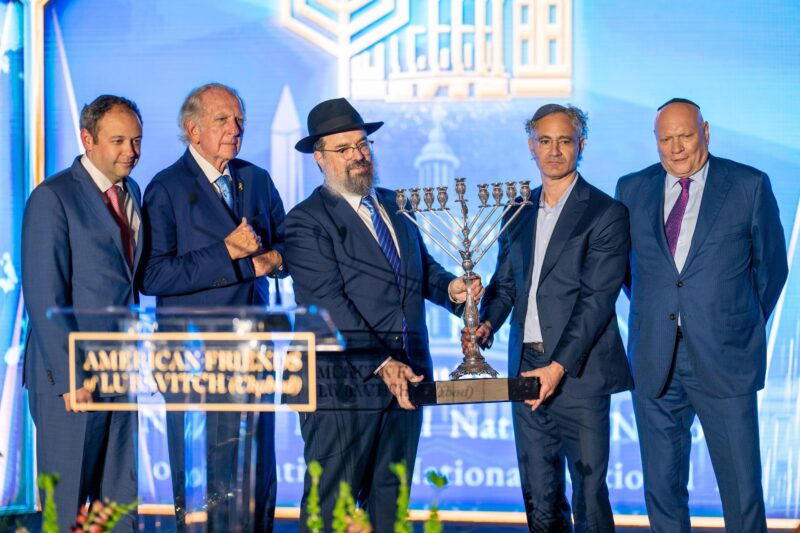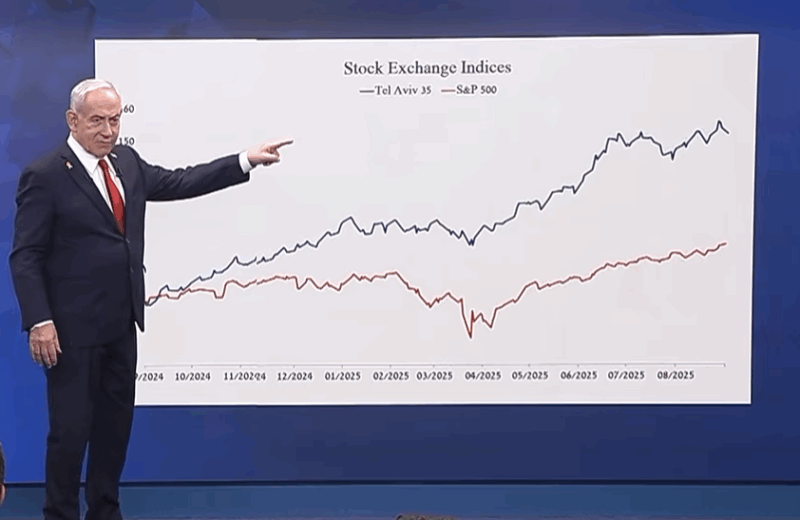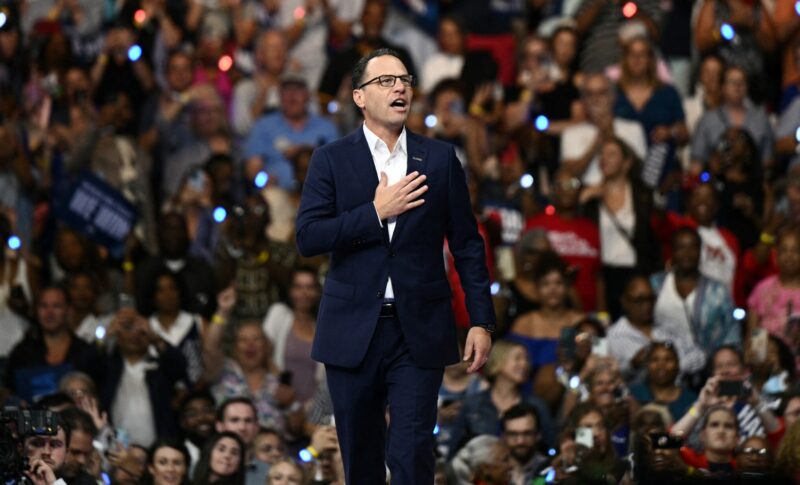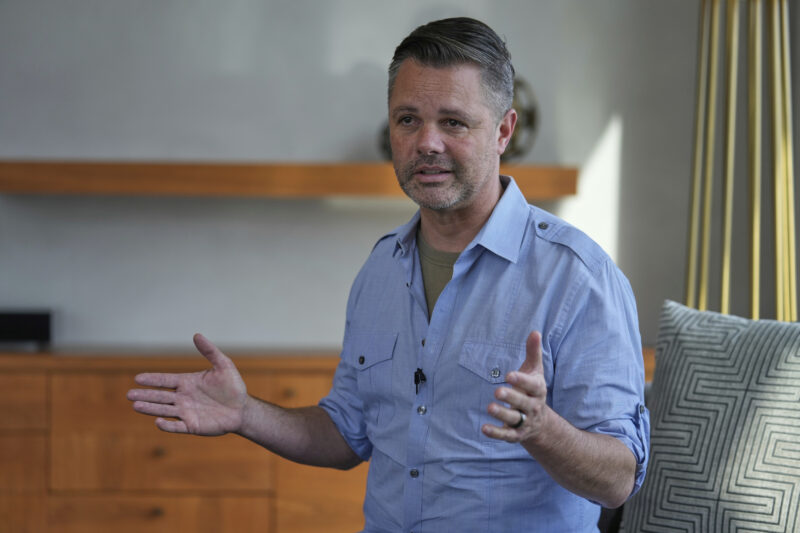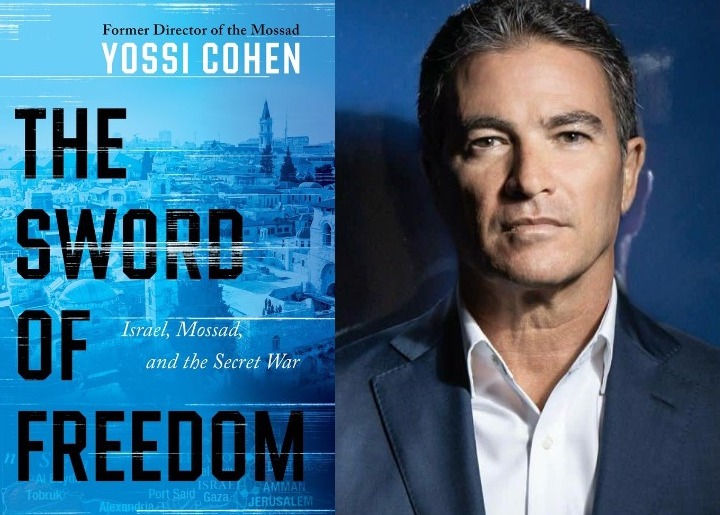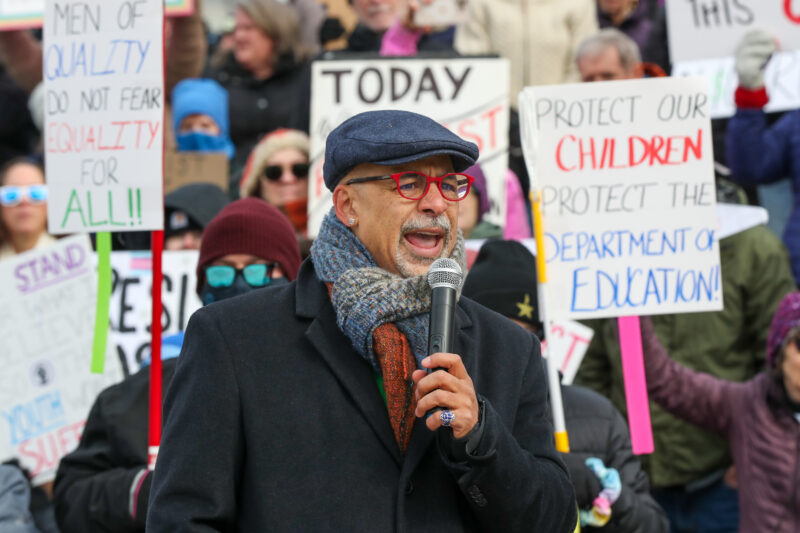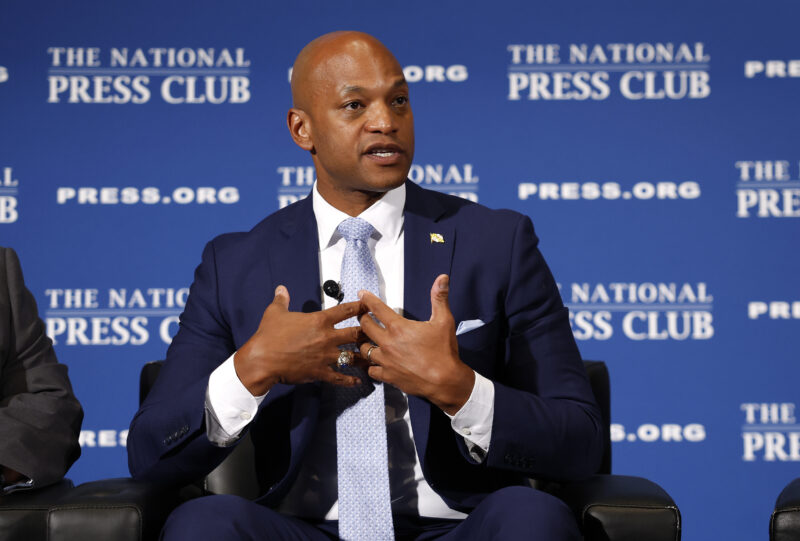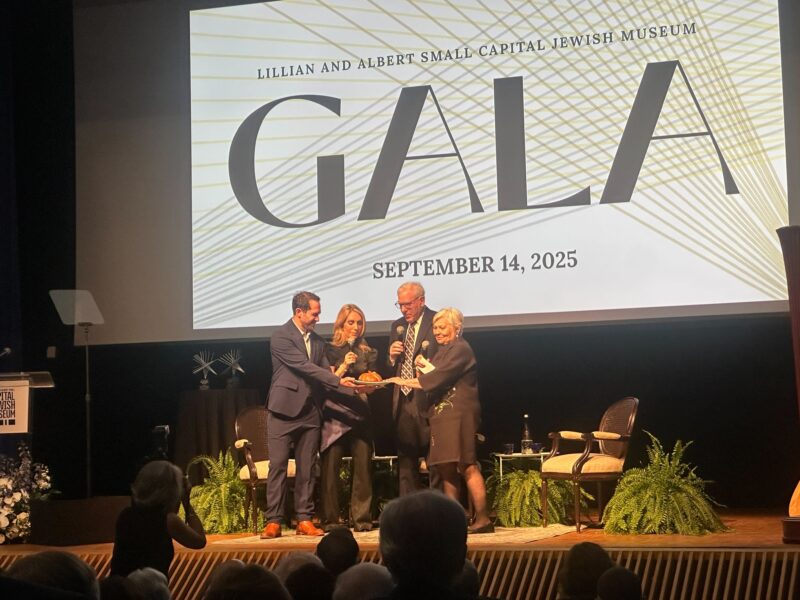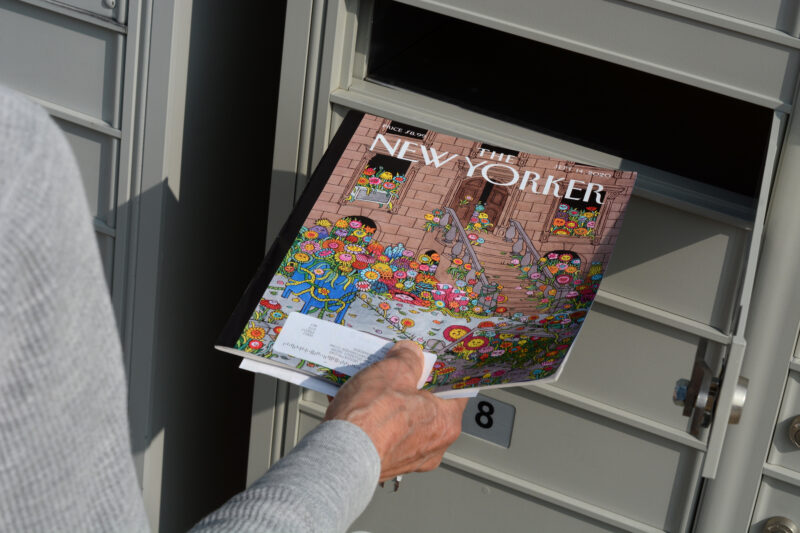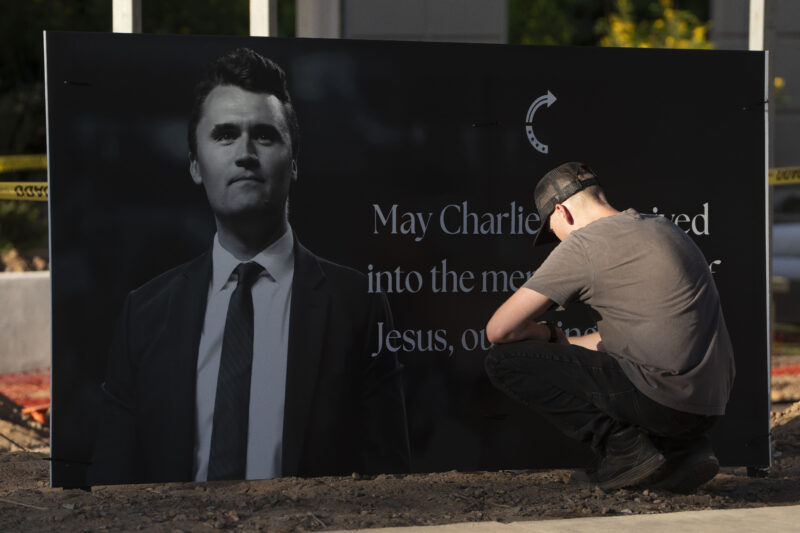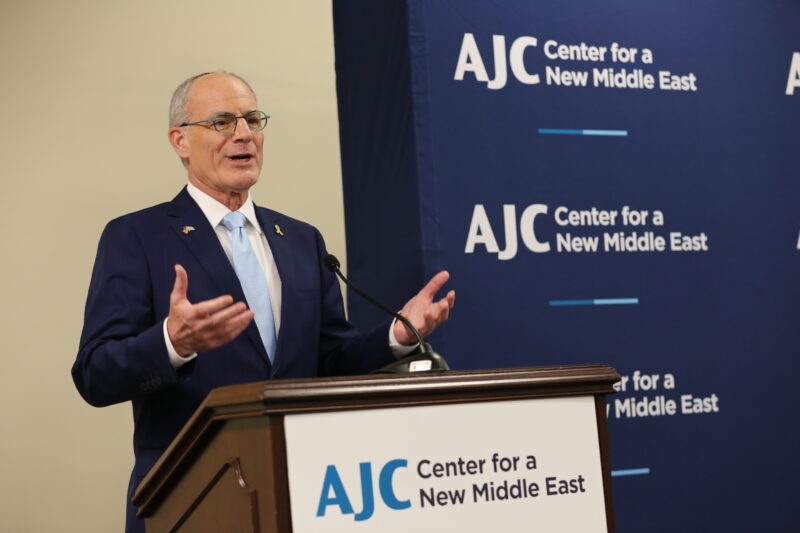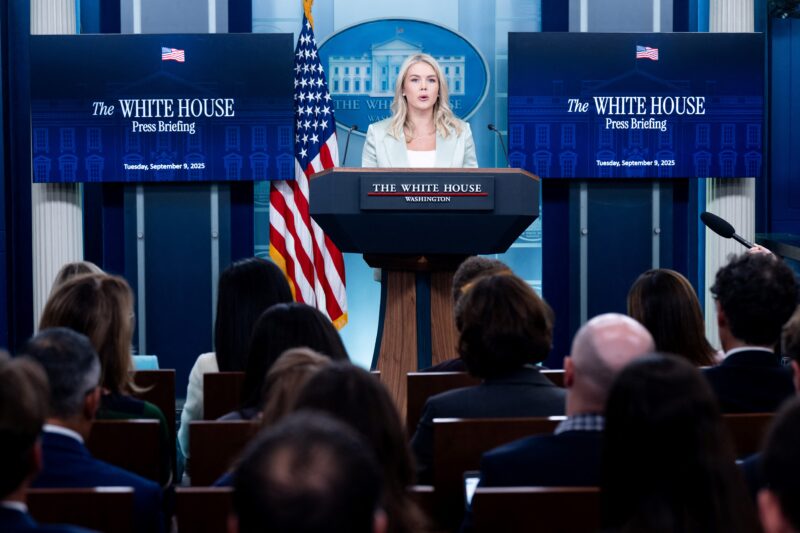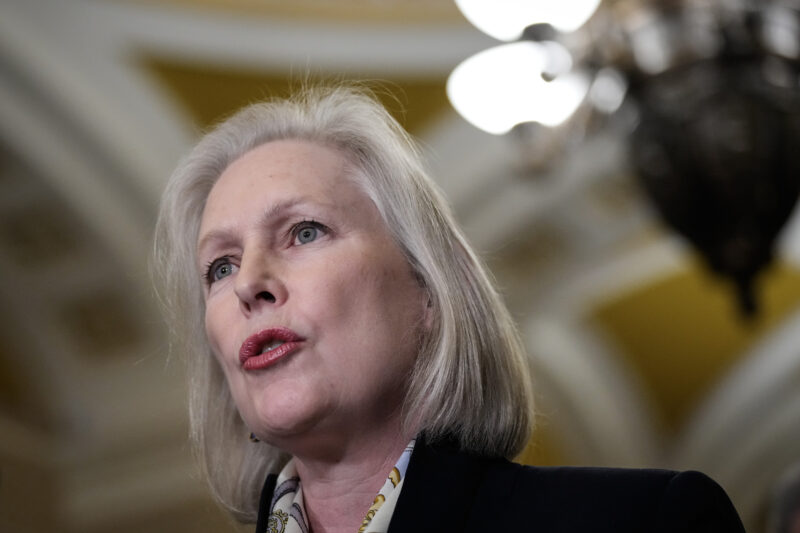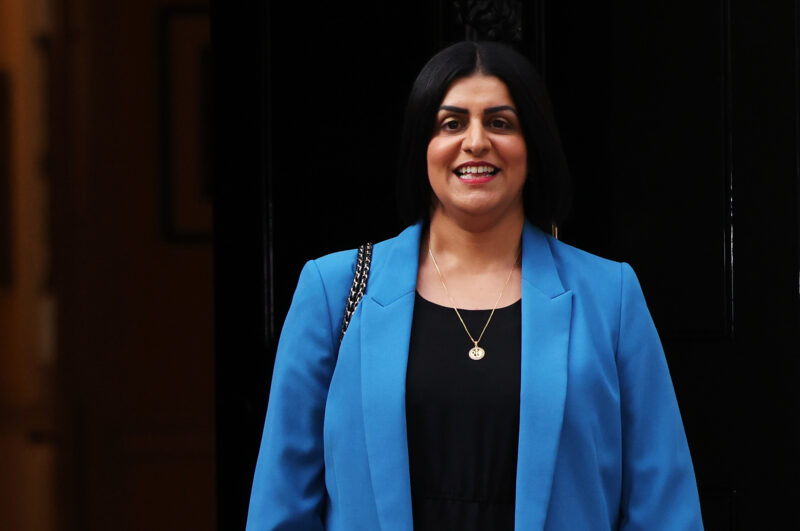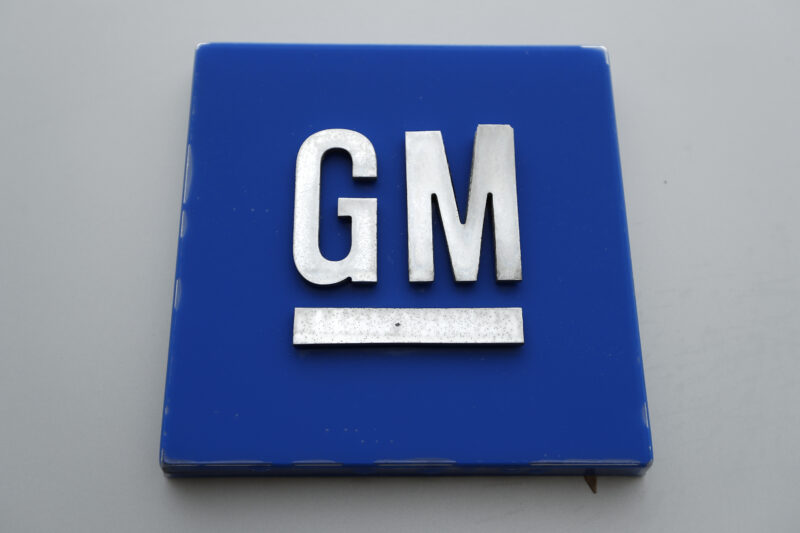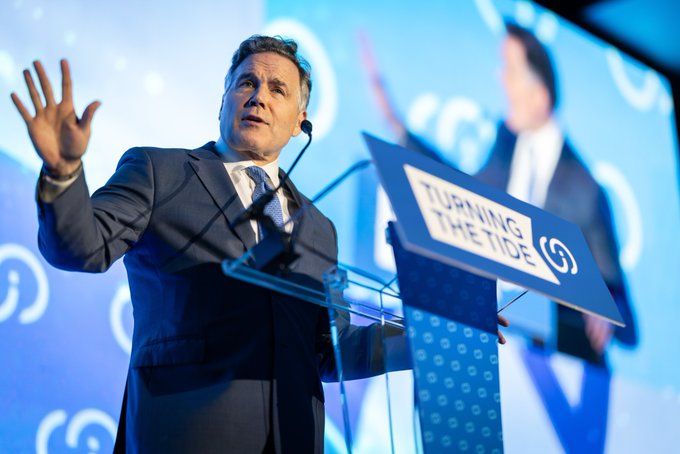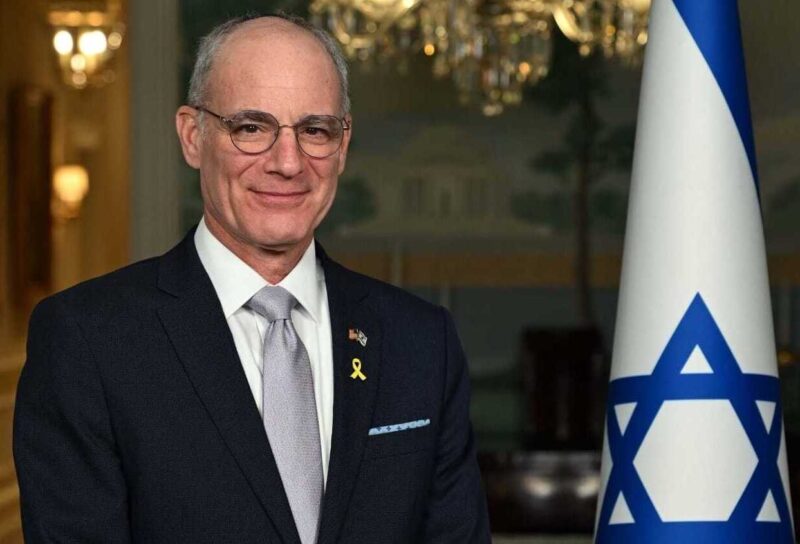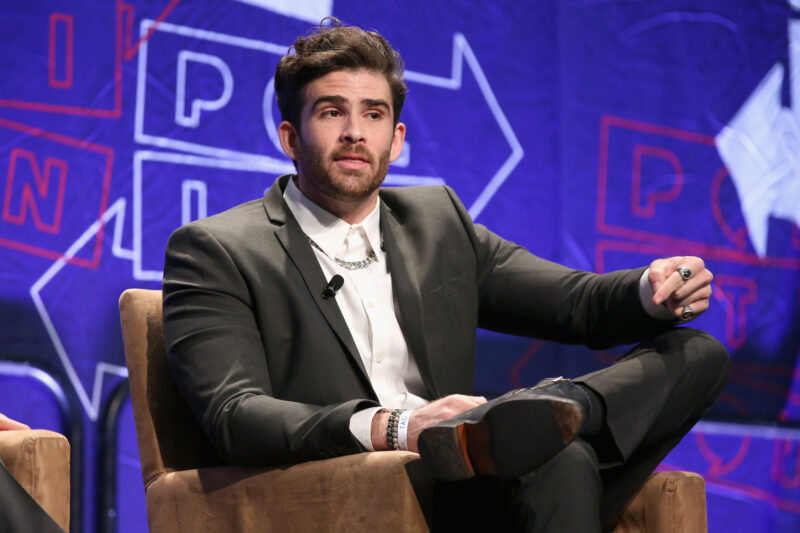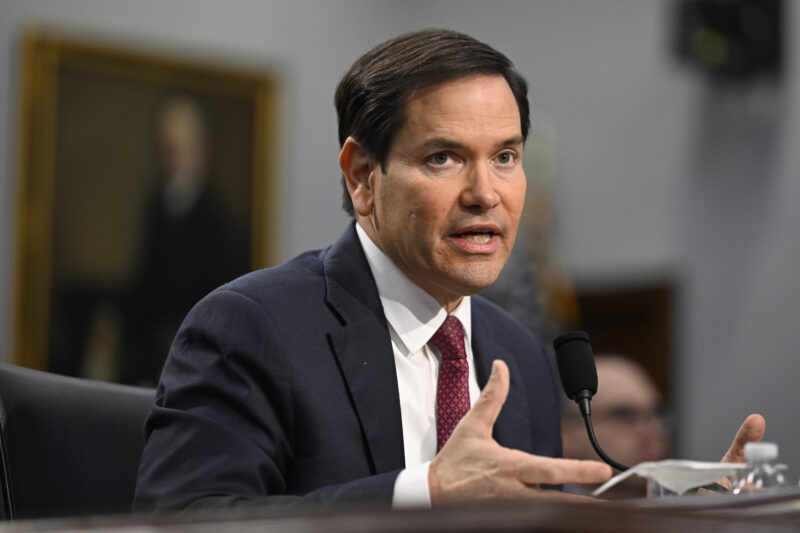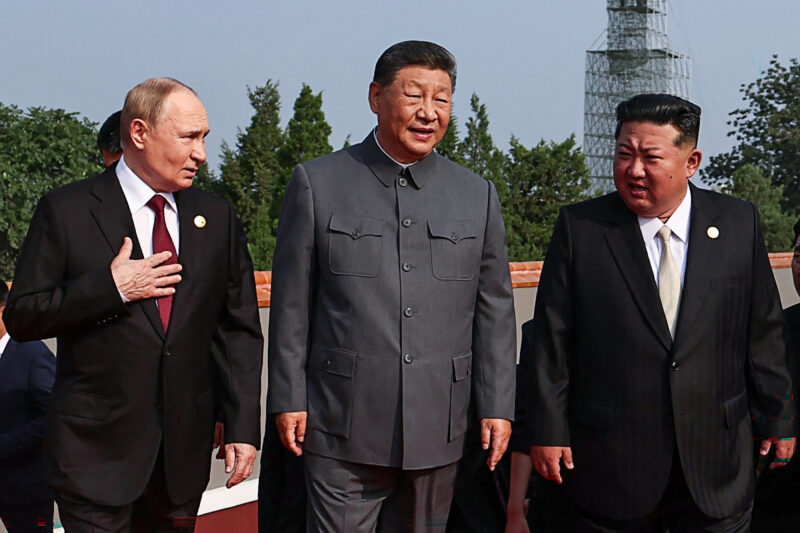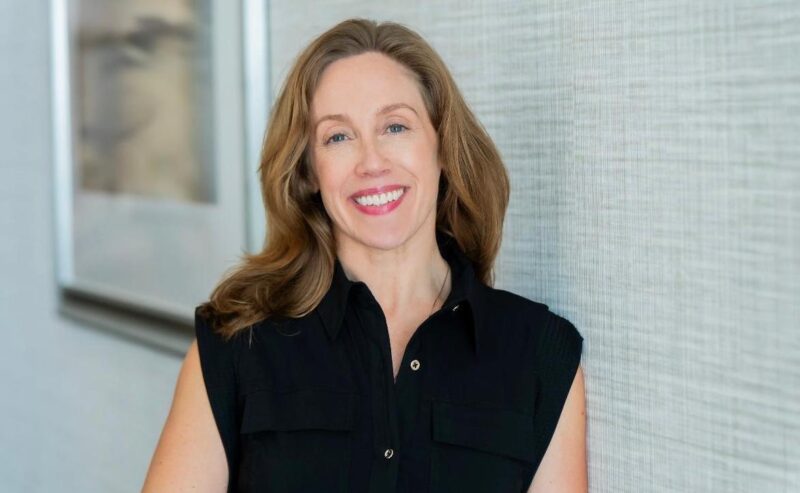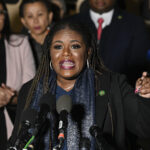In new book, Elliott Abrams calls for rebuilding Jewish community
In 'If You Will It,' the former diplomat considers the trajectory of American Jewry in a post-Oct. 7 world

Riccardo Savi/Getty Images for Concordia Summit
Elliott Abrams, special representative For Venezuela, speaks onstage during the 2019 Concordia Annual Summit - Day 1 at Grand Hyatt New York on September 23, 2019 in New York City.
Elliott Abrams, the conservative former diplomat who now serves as a senior fellow at the Council on Foreign Relations, began writing his new book, If You Will It: Rebuilding Jewish Peoplehood for the 21st Century, before the Oct. 7 Hamas attacks in Israel.
But the project grew increasingly urgent, he said in an interview with Jewish Insider, amid an uptick in antisemitic activity in the wake of the massacre and ensuing war in Gaza just over a year ago this month. “There has been a lot more visible antisemitism in the last year, and when I started writing the book, I didn’t pay a lot of attention to antisemitism because it didn’t seem that there was much,” he explained.
“I’ve seen a lot of Jewish leaders say that Oct. 7 changes everything for American Jews,” he added. “But I don’t think that’s right. How we react to it is what’s really more important.”
His book, which takes its name from a Theodor Herzl quotation and came out Oct. 8, is aimed at strengthening Jewish identity amid data that shows young American Jews drifting away from the community as well as Israel.
Speaking with JI last week, Abrams discussed his concerns about declining Jewish attachment, his plans to address it, and why it matters not only for Jewish continuity in the U.S. but in Israel, among other things.
The interview has been edited and condensed for clarity.
Jewish Insider: You’ve previously written about American Jewry. What motivated you to approach the subject again with this book?
Elliott Abrams: I wrote a book about American Jewry in 1997, and that’s a quarter-century ago. Looking at the more recent data, it seemed to me that things are not in good shape, that the community is eroding at the edges. Here’s just one number: There are, according to the 2020 Pew survey, 2.4 million children growing up in homes with two Jewish parents or one Jewish parent. Of those 2.4 million children, half are being raised exclusively as Jews. Half are being raised as Christians or Christians and Jews or nothing. That’s a terrible number that suggests real erosion over time in the American Jewish community, and there are lots of numbers like that I go over in the book. That’s what led me to say that we think we’re doing better than we are. We think this is a more successful community than it is. I argue in the book that we are a fantastically successful community if viewed as just another ethnic group or just another immigrant group, but as Jews, we’re not doing very well.
JI: What are the ramifications of this erosion you describe that you find worrying?
EA: For a lot of people, I think it won’t matter, and I understand that: If you don’t care, you don’t care. But I think it’s important, and here the Israel angle comes in — in part because the traditional pillars of support for Israel — young Jews, young Democrats, young evangelicals — are turning away from Israel. There’s a lot of data about this, and Israel is going to need strong support from the American Jewish community. To me, if the community diminishes in size and vitality, that’s a real problem for Israel. I also think, as I argue in the book, that Israel is part of the solution for American Jews — because nothing better builds a sense of peoplehood or Jewish identity for young American views than time in Israel.
JI: You write in the book that Birthright has sent more than 800,000 young Jews to Israel since its creation in 1999. That seems like a lot of people.
EA: What is striking, though, if you go back to the American Jewish community, is that there are 20 years of Birthright. With those 20 years, the percentage of American Jews who’ve ever been to Israel once is 45%. That’s way low compared to other diaspora communities — British, French, Australians, Canadian — and it should be much higher. We do know from Birthright studies and others that it can have a life-changing impact.
Certainly one of the reasons that other diaspora communities visit Israel more and have stronger ties is they’re smaller and view themselves as being at risk in the way American Jews have not viewed ourselves. But I think, if you look at the overall data, we are at risk.
JI: You draw a distinction in the book between Jewish peoplehood and Judaism.
EA: I do. Obviously they’re related to each other. But in the 1997 book, I argued that the real answer for Jewish vitality and survival was Judaism, the religion, and what’s changed here is that’s not wrong but it’s just not practical. About 10% of Jews really practice the religion. What about the other 90%? That’s really who this book is addressing — the 90% who don’t really practice the religion, but they care about it. They care about their own Jewish identity. They care about the Jewish people. They care about their children and grandchildren. And if they’re philanthropists, they care about the Jewish community. So what do you do? This book is not really addressing Orthodox Jews. It’s addressing the 90% of us who aren’t.
JI: That’s a big audience.
EA: Yes, if they all buy the book, that would be good.
JI: You talk a bit in the book about your own Jewish upbringing and how your grandparents spoke Yiddish.
EA: My grandparents spoke Yiddish. Of course they spoke English, but with very thick accents, and they read English with great difficulty. It was the kind of ethnic experience that American Jews today just don’t [have]. It’s gone — and one of the things I say in the book is that for the immigrant generation and their children and to some extent their grandchildren, being Jewish was a kind of immersive ethnic experience. It kept people Jewish, and it’s over. In the 1950s and ’60s, Jews after the Second World War moved to the suburbs and began to live in American society. We didn’t any longer have to live in Jewish neighborhoods and work in Jewish firms and marry Jews. That’s really changed in the last, let’s say, 50 years, tremendously. In a way, it’s a great story about America. Anyone can assimilate and leave the community that you grew up in. But it’s not a great story for Jews if you care about the future of your community.
JI: In A Bintel Brief, the collection of advice columns by Abraham Cahan, the founder and editor of The Jewish Daily Forward, he was often in favor of Jews embracing their American identity and choosing the path of assimilation, because that’s what Jews apparently needed to hear at the time. But it also seemed to have led to the deracination of a uniquely Jewish sense of place or identity.
EA: I think it did, except for the Orthodox. What I argue in the book is that being Jewish 50 or 75 or 100 years ago was very often an immersive social experience because of where you lived, where you worked, even where you studied — and we need to recreate that. We need to recreate it in schools or camps or by time in Israel.
JI: Are you optimistic that can happen? You go through a very detailed list of proposals in your book.
EA: It certainly can happen. What’s the obstacle, for example, to more Jewish parents sending their children to a Jewish camp? The obstacle for many is money, and that’s true to some extent with time in Israel. But I think it’s eminently doable, and I’m hopeful — particularly now, after a year in which antisemitism has been more visible — that more Jews will will try to do things that build up the Jewish community. I think the proper or the best answer to antisemitism is to strengthen the Jewish community.
JI: Have you gotten any feedback to the book and the ideas you put forth?
EA: I’m just starting to get it. I’ll give you one example I get from a number of rabbis. I’m urging concentration on education, on Jewish summer camping and on time in Israel — and I get rabbis saying, ‘Hey, where’s the synagogue in this?’ I get that. I think that’s a very interesting question and interesting debate to have. The reason I didn’t say the synagogue was because I’m speaking for a lot of Jews who don’t really go to synagogue. They go twice a year. For most American Jews, I think that’s really not the answer, although I do suggest Hebrew schools are part of the problem today and really need fixing.
JI: Can you elaborate on that?
EA: Put aside Orthodox Jews, who mostly, almost entirely go to Jewish day schools. The model we’ve had for 100 years is every synagogue has a Hebrew school, you go to it, then you get bar mitzvahed, and then you leave. That model is not working. I have almost never met an American Jewish adult who says to me, ‘I loved Hebrew school, and it changed my life.’ That’s not so surprising. Why would you think that among the thousands of synagogues in America, every single one of them, or even the majority of them, is going to have a wonderful Hebrew school? Most don’t, and the kids leave after the bar or bat mitzvah — which is partly a parent’s responsibility, of course, but more needs to be done.
I give the example in the book of a program in Houston where a bunch of synagogues got together so that there were post-bar mitzvah and bat mitzvah courses. But there was also a social activity for the kids, so it’s not, you’re in your silo in your synagogue, and the others are in their synagogue. They realized that they had to do it with all the synagogues together, and they rotate where the classes meet because they understood that synagogues don’t want to, in a sense, give away their kids. They want to continue to have a role. There are some elective courses and there are some required courses, and it’s obviously a social as well as educational activity, and it seems to be working to keep Jewish kids active. I think the model of just having every synagogue do its own has been failing for decades, and it will continue to fail.
JI: For you, is there any particular aspect of being Jewish that you think is perhaps most important, or most important to emphasize among the proposals you put forward? There are a lot of people who just think of themselves as culturally Jewish but maybe won’t be interested in taking it a step further.
EA: Pew divides into Jews by religion and Jews of no religion, and I guess what I would say to those American Jews is, it’s not going to work — unless you do something more than that. Growing up in a country that’s 98% non-Jewish, unless you act, your children and grandchildren are going to disappear as Jews. In Israel, it’s possible to do this. That is, you can be totally secular and sure that your children are going to marry Jews and your grandchildren are going to be Jewish. You cannot do that in America. It’s not going to work. And if you care, then you’ve got to give your children some immersive Jewish experiences where they have a chance to live as Jews among Jews — and if it isn’t school, then it ought to be camp or it ought to be Israel.
I have had some people say to me that the antisemitism on campuses now is really leading to big changes. But one study I quote in the book — there’s actually a follow-up in 2024 after Oct. 7 — and you won’t be shocked by the outcome. Students who come to college with a strong Jewish background get more active and their identity is deepened when they face campus antisemitism. Students who come to college with no Jewish background just kind of walk away. So the notion that what’s happened in the last year is going to change everything and is going to create overnight Jewish identity for young American Jews, I think, is much too optimistic. Parents, grandparents have to have to give their family some Jewish experiences if they expect them to remain Jewish.
JI: Beyond the argument that Jews who care have to do more in order to bolster a sense of belonging and continuity in the U.S., do you feel that there’s a broader argument that bolstering the community also enriches the U.S. itself?
EA: Well, I think so. I don’t think the country is enriched by homogenization, and I think, for example, the arrival in recent decades of immigrants from India and Korea has enriched our society. Those are very strong model immigrant groups that are excelling in this society. I think Jews have. Jews have made enormous contributions to the United States. Those contributions, by the way, I think, are going to disappear if we just disappear as an identifiable community. I also think the relationship with Israel is very valuable for the United States — and Jews in this country are a very strong pillar of support for that relationship.
JI: You started working on the book before Oct. 7, but did the attack cause you to rethink your approach as you continued to write?
EA: It caused me to rethink one thing in particular, which is the question of antisemitism. There has been a lot more visible antisemitism in the last year, and when I started writing the book, I didn’t pay a lot of attention to antisemitism because it didn’t seem that there was much. So the question was, how will that antisemitism affect the Jewish community? I’ve seen a lot of Jewish leaders say that Oct. 7 changes everything for American Jews. Well, first, I don’t think it changes everything. I lived through people saying ‘the 1967 war changes everything’ and ‘the 1973 war changes everything.’ But I don’t think that’s right. How we react to it is what’s really more important.
What we’ve seen on campus, I think, is that, as I was saying, how you react depends on what you arrive on campus with — a strong Jewish background or a very weak Jewish background. Does it matter to you as a college student, or doesn’t it matter to you? So that was something that had to be reexamined after Oct. 7. But mostly, the year since Oct. 7 seems to me to make this whole discussion more important. It’s more visible now that Israel needs the United States. It is critical. Remember the slogan ‘Israel has to be able to defend itself by itself against all enemies’? It’s really no longer true. We’ve seen that as they confront Iran. They can’t do it without American support. And as we’ve seen so much support for Hamas and wavering support around the world for Israel, the attacks on Israel, the support of the United States is even more important. To me, it means that having a really strong, vibrant, growing American Jewish community is critical for Israel.
JI: Where do you see Jews on the far left in this conversation?
EA: I think a lot of Jews on the left have had a very, very difficult and disillusioning year. They have found that people on the left they thought were their allies have deserted them and have deserted Jews and have deserted Israel — and so they will have to figure that out. What does that mean for them? If you go to the far left — the people who write for Jewish Currents magazine, the people in Jewish Voice for Peace — I think they are gone. They are now enemies of Israel and enemies of the American Jewish community. They’ve turned against their own people, and they’re out there marching in pro-Hamas demonstrations.
JI: So you would draw a distinction between that cohort and more disenchanted liberal or left-wing Jews.
EA: Absolutely. I know many American Jews, for example, who are very disillusioned with [Israeli Prime Minister Benjamin] Netanyahu and disillusioned with this government of Israel. They are still strong supporters of Israel, and they’re still Zionists. We’re not talking about criticism of this particular coalition governing Israel now. You have to draw the line somewhere, and we will all disagree on exactly where to draw that line, but I think it’s clear that people like Jewish Voice for Peace are not critical of Netanyahu, they’re anti-Israel. They’re making common cause with the enemy.
JI: To throw in a foreign policy question, in the aftermath of Yahya Sinwar’s killing, what do you make of the path forward in Gaza, and what’s your response to President Joe Biden’s renewed push to wind down the war now?
EA: We all want the war to end and the hostages to be returned, and as Netanyahu said, maybe this is the beginning of the end. The Biden administration has been wrong about this. They have slowed Israel down, for example, in going into Rafah early in 2024. That was delayed several months because of bad advice from the United States, and the United States is still, I think, saying ‘tone it down, take the win’ — and that has been bad advice. I don’t know whether this is a turning point, because we do not yet know, as you and I are talking, about the Hamas response.
There is, at one end of the spectrum, the hope that there’s a deal possible now that frees the hostages, that allows some of the Hamas leaders to leave, and that has other Hamas fighters laying down their arms. That opens a huge problem that nobody really has a solution to, which is who governs Gaza the day after and who provides security in Gaza the day after. But at the other end of the spectrum, there is, of course, the horror that other Hamas leaders will kill other hostages as they executed six hostages. I wouldn’t say this is a moment of opportunity. It may be a moment of opportunity — and that’s what we need to find out.
JI: Despite your criticism of Biden’s approach to the war, you acknowledge in the book his real attachment to Israel, which drew praise from Republicans at the beginning of the war. Do you have any concerns that that kind of attachment, which was probably borne out of proximity to the Holocaust and living through the events of 1967 and 1973, is fading within the non-Jewish community as well?
EA: I think that’s what the data shows — that younger Americans in general have less of a commitment to Israel. Younger evangelicals are less supportive than their parents and grandparents. Younger Jews are less supportive. And younger Democrats certainly are. If you look at the data, and I have some of this in the book, Democrats under 30, let’s say, are much less supportive of Israel than Democrats over 60. It almost goes decade by decade. I worry about that a lot, and there’s no easy solution to it — except we should certainly, within the Jewish community, be trying to make sure that we stop that trend toward younger Jews being less committed to Israel.
JI: Can you describe any of your own efforts to help reverse this trend?
EA: I’m chairman of the board of the Tikvah Fund in New York, and we’ve actually opened the first Jewish classical school in America. There are a lot of evangelical and Catholic classical schools. There hasn’t been a Jewish school, and we’ve started one in Manhattan called Emet Classical Academy. We teach Hebrew and Latin, and the basic idea is to teach young Jews about the greatness of Jewish and Western civilization, and Jewish civilization as the basis with ancient Greece and Rome of Western civilization. That’s one of the ways we’re addressing it. We have lots and lots of online courses for young Jews. We have a program that combines online courses with in-person courses in about 10 different places in the country, and we’re trying to expand it to more cities.
We’re working now with the University of Florida, which is building an honors college called the Hamilton Center to help build up the Jewish course content there. The University of Florida has more Jewish students than any other college in America, and one of the things we’re doing as we work with Jewish day schools and with the students we have who are not in day schools is saying, ‘Do you really want to go to an Ivy League campus, which is going to be a battlefield, and in which so many people on the faculty are so unsympathetic? Think about the University of Florida. Maybe it’s a much more welcoming place, and it’s one that’s getting better and better.’




